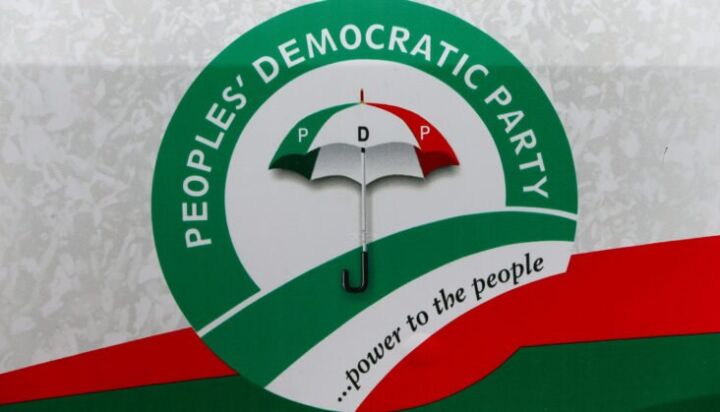Former Governor of Rivers State and current Minister of the Federal Capital Territory (FCT), Nyesom Wike, has made bold claims regarding accusations from within his party, the Peoples Democratic Party (PDP).
The accusations stem from his involvement with the All Progressives Congress (APC)-led administration under President Bola Tinubu.
Wike, a long-standing member of the PDP, has faced allegations of acting as a mole within his party, and his appointment as a minister in Tinubu’s government has only fuelled these suspicions.

However, in a recent public statement, Wike has not only defended his actions but also turned the spotlight on his accusers, suggesting that they, too, were involved in similar activities.
In an interview on Channels Television’s Politics Today*, Wike did not hold back in addressing the accusations. He pointedly claimed that some of his critics within the PDP had secretly submitted nominations for ministerial appointments to President Tinubu’s administration.
According to Wike, those accusing him of treachery were guilty of the very thing they criticised him for.
“Who in the PDP didn’t try to nominate names for President Tinubu’s appointments? Yes, they did. Let them come forward and say they did not do it,” Wike declared, challenging his critics to deny their involvement.
This revelation, if true, raises significant questions about the internal dynamics of the PDP. Wike’s claim suggests that while some party leaders publicly denounce the APC, they may privately seek to align themselves with the ruling party, possibly for political gain.
The accusations of being a mole, therefore, could reflect deeper rifts within the PDP, as party members navigate the complex political landscape of Nigeria.
Wike’s relationship with the PDP has been turbulent in recent years. Despite being one of the party’s most vocal and influential figures, his actions have often drawn criticism from within the ranks.
His decision to accept a ministerial position in Tinubu’s government has been viewed by some as a betrayal, especially given his long-standing opposition to the APC. Wike, however, has maintained that his decision was in the best interest of the nation and not a sign of disloyalty to his party.
The former governor’s comments highlight the tensions between loyalty to party ideals and the need for pragmatic political alliances.
Wike’s willingness to work with the APC, despite their past political battles, suggests a shift in his approach to governance. He has repeatedly emphasised that his primary goal is to serve the people and not to remain bound by party loyalties.
This stance, while controversial, has earned him both supporters and detractors within the political arena.
Adding to the controversy is Wike’s ongoing feud with his successor, Governor Siminalayi Fubara of Rivers State.
Fubara, who was once seen as Wike’s protégé, has recently fallen out with his former mentor. The details of their conflict remain unclear, but it is evident that the relationship between the two has soured significantly.
Wike has gone as far as threatening to take drastic measures if any PDP governors attempt to intervene in his dispute with Fubara.
In a recent statement, Wike vowed to “set fire” in Rivers State should any external forces, particularly PDP governors, try to interfere in the matter.
This feud has significant implications for the political stability of Rivers State, which has long been a stronghold of the PDP.
Wike’s warning suggests that the conflict could escalate if not managed carefully, potentially leading to a larger political crisis within the state.
As a former governor with substantial influence, Wike’s actions could have a lasting impact on the political landscape of Rivers State.
Wike’s recent remarks and actions highlight the complex and often contradictory nature of Nigerian politics.
On one hand, party loyalty is often emphasised as a key element of political identity, yet behind the scenes, pragmatic alliances are frequently made across party lines.
The accusations against Wike and his counterclaims point to the fluidity of these relationships, where the boundaries between opposition and collaboration are often blurred.
Moreover, Wike’s bold stance reflects the challenges faced by Nigerian politicians in balancing personal ambition, party loyalty, and national interest.
His willingness to challenge the status quo and question the actions of his fellow party members is indicative of a broader trend within Nigerian politics, where individuals increasingly prioritise their political survival and influence over strict adherence to party ideologies.
Nyesom Wike’s recent statements and actions have undoubtedly stirred the political waters in Nigeria.
His claims about PDP members secretly working with the APC, coupled with his ongoing feud with Governor Fubara, underscore the complex and often contentious nature of Nigerian politics.
As Wike continues to navigate these challenges, his ability to maintain his influence both within the PDP and on the national stage will be closely watched.
Whether his actions will ultimately strengthen or weaken his political standing remains to be seen, but one thing is certain: Wike is not one to shy away from confrontation, and his role in shaping Nigeria’s political future is far from over.
Support InfoStride News' Credible Journalism: Only credible journalism can guarantee a fair, accountable and transparent society, including democracy and government. It involves a lot of efforts and money. We need your support. Click here to Donate
